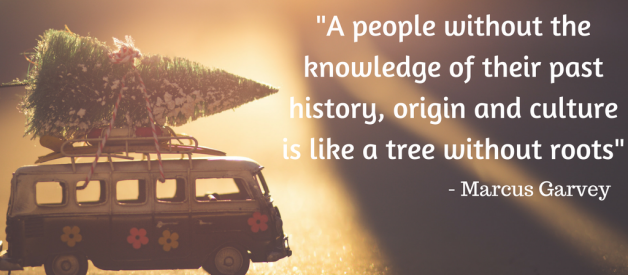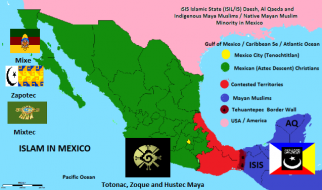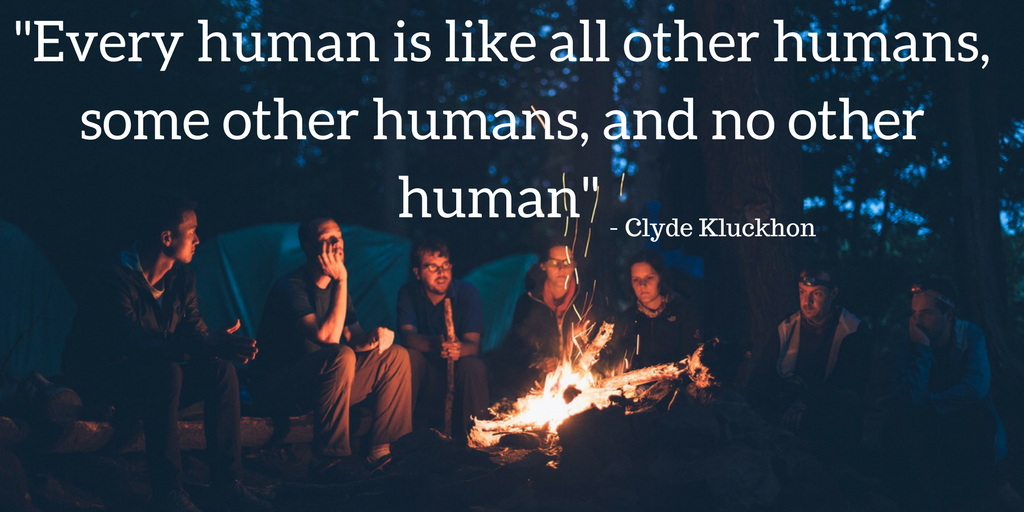
- ?Every human is like all other humans, some other humans, and no other human? ? Clyde Kluckhon
Examples for things which we all share in common are needs such as the need for belonging, self-actualization or a proper role in society.
Examples for things which we share with some other humans are cultural characteristics such as certain approaches to time or to power-distance, as well as certain personal characteristics such as extrovertedness or openness to new experiences.
Examples for things which we do not share in common with anybody else are our experiences, our unique setup of our DNA and the unique combination of the beliefs that make up our belief system.
If we want to become better intercultural communicators, we need to understand all three of these levels and how we can understand which of these levels are influencing the behavior of a person at any given time.
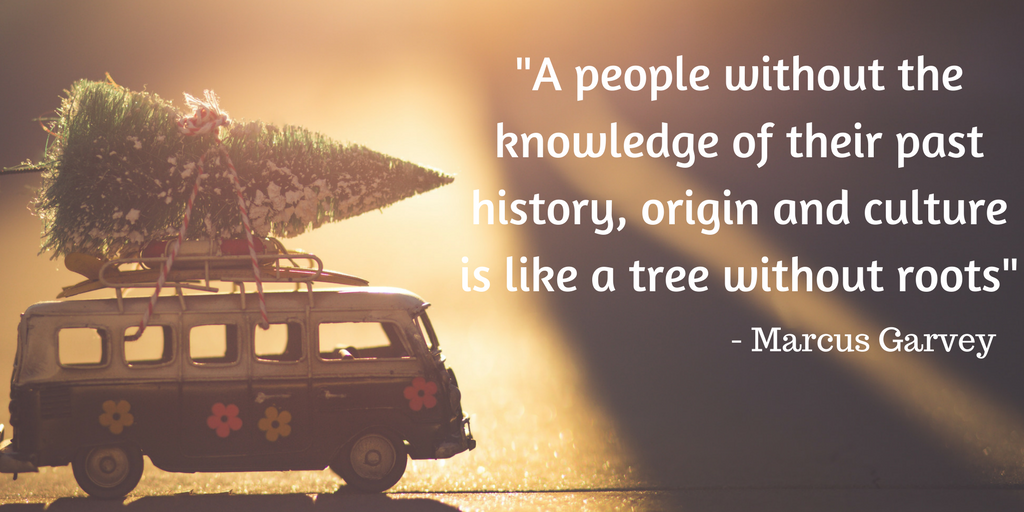
2. ?A people without the knowledge of their past history, origin and culture is like a tree without roots? ? Marcus Garvey
Regardless of how well we adapt to any cultural environment, we always need to remain aware of our own roots ? the values and beliefs we were brought up with, the worldview that was ingrained into us, the experiences that we had throughout our lives and the characteristics that make us who we are.
Governments tend to push the idea of assimilating into another culture in the sense that foreigners should adapt the new belief system and way of behaving completely.
This, however, is simply not possible as it makes us feel disconnected with who were are and, ultimately, can only have very negative psychological consequences such as depression.
That brings us to the next quote?
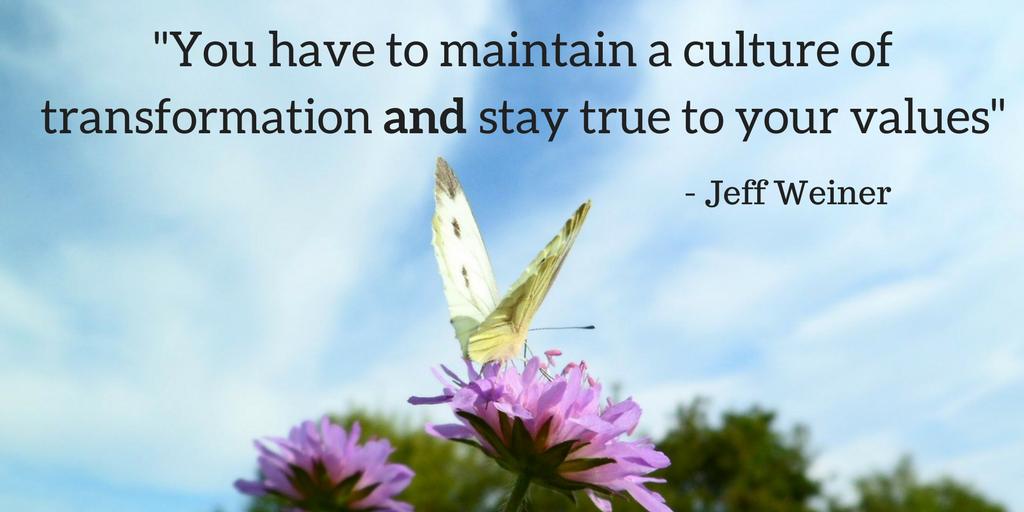
3. ?You have to maintain a culture of transformation and stay true to your values? ? Jeff Weiner
At the same time, we need to remain true to our roots, which certainly includes our values, and we need to remain open for new experiences, new ways of looking and the world and new beliefs that may influence our way of looking at the world.
Developing a culture of transformation both inside of yourself, and also within your company, is very important in the sense that it is the antithesis to stagnation.
In order to make real progress, we need to remain open to the idea of transforming ourselves by adapting new ways of thinking, behaving, as well as new beliefs.
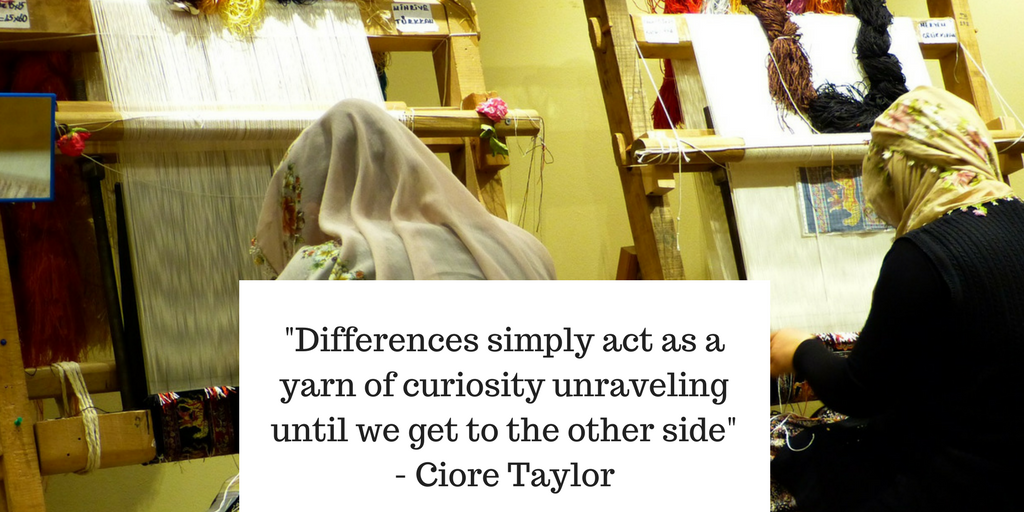
4. ?Differences simply act as a yarn of curiosity unraveling until we get to the other side? ? Ciore Taylor
With this quote, Ciore Taylor gives us an idea of how we can enter such a stage of transformation.
Essentially, we need to let ourselves be guided by our curiosity. Once we notice a type of different from other people that makes us feel strange or even defensive, or which makes us wonder about what the meaning behind it really is, we then need to follow that curiosity.
Following that curiosity means that we need to try to find our where the behavior is coming from. Which beliefs are underlying it. What the motivations behind this behavior really are.
First comes intellectual understanding, then a time of testing out this new behavior, then a time where we need to decide for ourselves whether the beliefs underlying it are in line with who we are, and only then a process of personal transformation begins.
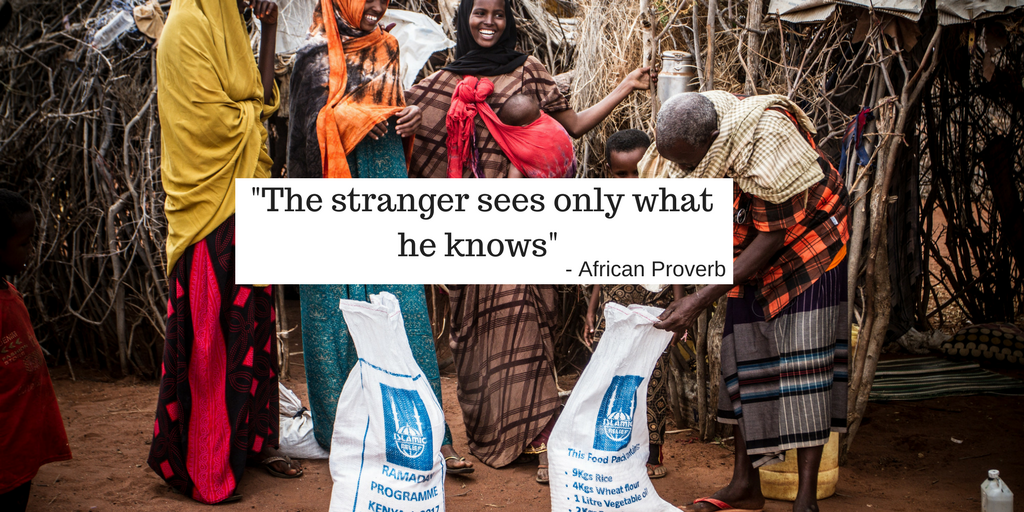
5. The stranger sees only what he knows ? African proverb
This African proverb is essentially describing one important characteristic of human perception which is causing problems for people trying to understand a different culture.
We as strangers to another culture unconsciously primarily pay attention to those elements of the other culture that are already familiar to us.
For example, while I am living in Iran, whenever I see a billboard written in Latin Alphabet, even if it isn?t in a language that I do not speak, my attention is drawn to that billboard automatically as it gives me a feeling of familiarity.
The problem with this is that by paying attention to those elements which are familiar to us, we are missing out on a large number of learning opportunities. And, it is exactly these learning opportunities of things that are the strangest to us which actually have the most potential for learning inherent in them.
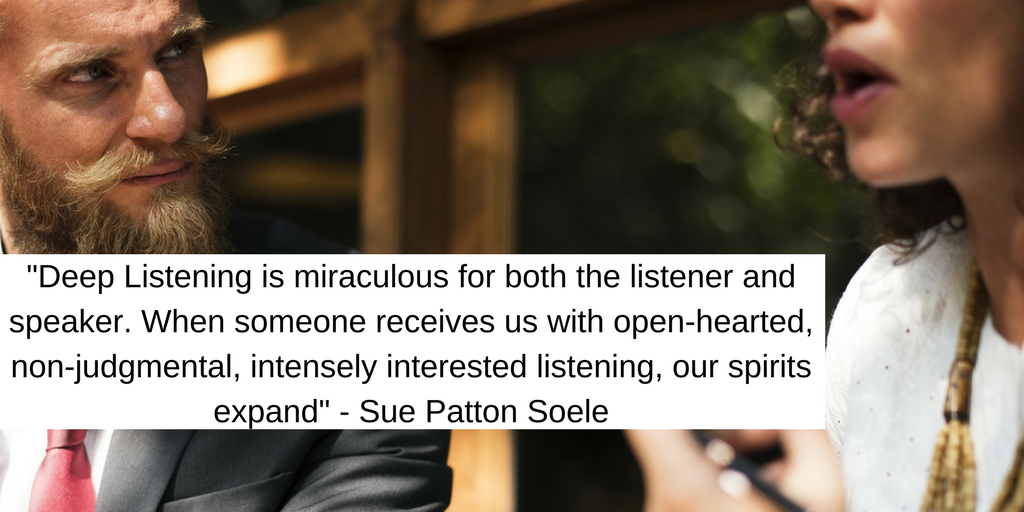
6. Deep listening is miraculous for both the listener and speaker. When someone receives us with open-hearted, non-judgmental, intensely interested listening, our spirits expand? ? Sue Patton Soele
The ability to listen is one of the skills that can help us the most regardless of which new culture we are trying to enter.
It goes hand in hand with the ability to perceive new stimuli, pay attention to them, understand them and analyse them.
By listening intently, we are paying attention to every single detail that could give us hints that eventually will lead to a much more complete understanding of the new cultural environment. At the same time, it also gives the other person a positive feeling, regardless of how successful both sides are in getting their meaning across to each other.

7. If you don?t give people information, they make up something to fill the void? ? Carla O?Dell
Here we are looking at precisely what happens when you are not actually listening carefully to what the other side has to say.
Your brain will simply make up something.
Because our brain craves for coherence in the stories that we are exposed to, it makes up its own interpretation for the different behaviors and beliefs of the people around us without double-checking on its correctness.
This is very dangerous in intercultural communication situations as it does not only prevent you from learning, but it also leads to misunderstandings.
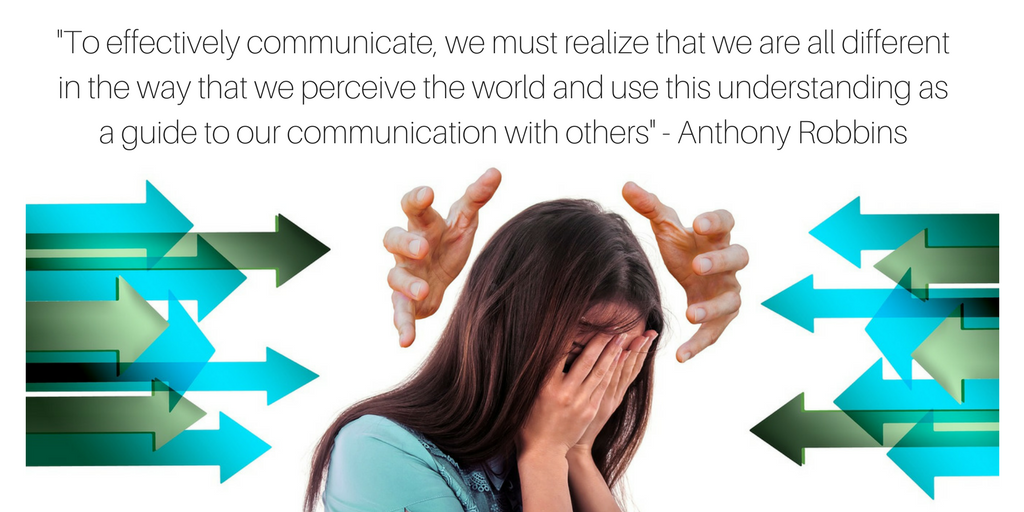
8. ?To effectively communicate, we must realize that we are all different in the way that we perceive the world and use this understanding as a guide to our communication with others? ? Anthony Robbins
It is important to constantly remind ourselves that the way the other person perceives the world is completely different from our own.
It is easy to fall into the trap that something should be ?obvious? to him or her simply because it is ?obvious? to us. When we think this way, we are forgetting the fact that this person has been growing up in a completely different environment with a completely different process of socialization.
As such, we need to check our assumptions about ?how the other person is thinking? constantly, especially if his or her cultural background is very different from ours.

9. ?There is very little ?of course? when it comes to customs? ? Janet Kagan
Customs all around the world differ from each other dramatically. Where one custom is ?normal? to one culture, it may seem completely absurd and strange to another.
Take this custom in India for example, for which the newborn baby gets thrown into the crowd.
Probably for people from most other cultures this behavior seems odd. Why would somebody risk the life of a child like that, and for what reason?
Well, in this particular subculture, people believe that this behavior brings luck to the newborn child and lead to success in his or her life. Therefore, it is worth taking that small risk that something can go wrong in the process.
When we think that something is strange, or when we feel that the behavior of people from another culture is plain wrong, we really need to do some serious research to find out what the meaning behind this behavior is.
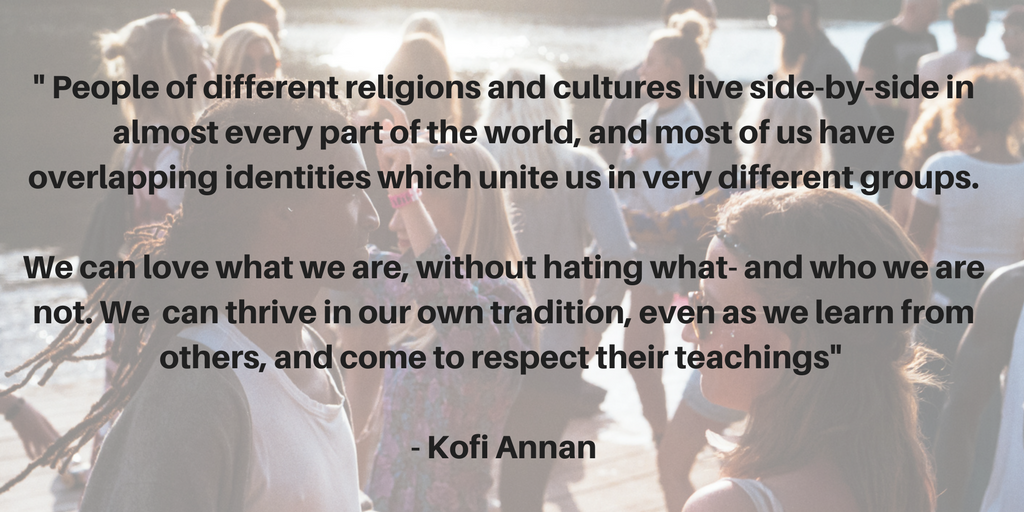
10. ?People of different religions and cultures live side-by-side in almost every part of the world, and most of us have overlapping identities which unite us in very different groups.
We can love what we are, without hating what- and who we are not. We can thrive in our own tradition, even as we learn from others, and come to respect their teachings? ? Kofi Annan
Here, there are two extremely interesting points. Firstly, Kofi Annan expresses the idea that most of us actually have overlapping identities of some sort. For example, even if I am seemingly the most far away from this person culturally, I might still have other identity layer in common with him or her.
For example, this could be a common sport, a common religion, a common belief. If we dig deep enough, the chance that we come across at least one common factor is quite high.
Secondly, the idea that we can remain in our own tradition while at the same time learning and adjusting to the traditions of those around us.
Essentially, this is the idea that only because we have one particular cultural conditioning, this doesn?t mean that we should reject anything that goes against our belief system.
Rather, we should embrace these differences as learning opportunities, and even if we can not accept them, then at least we should learn to understand and tolerate them.
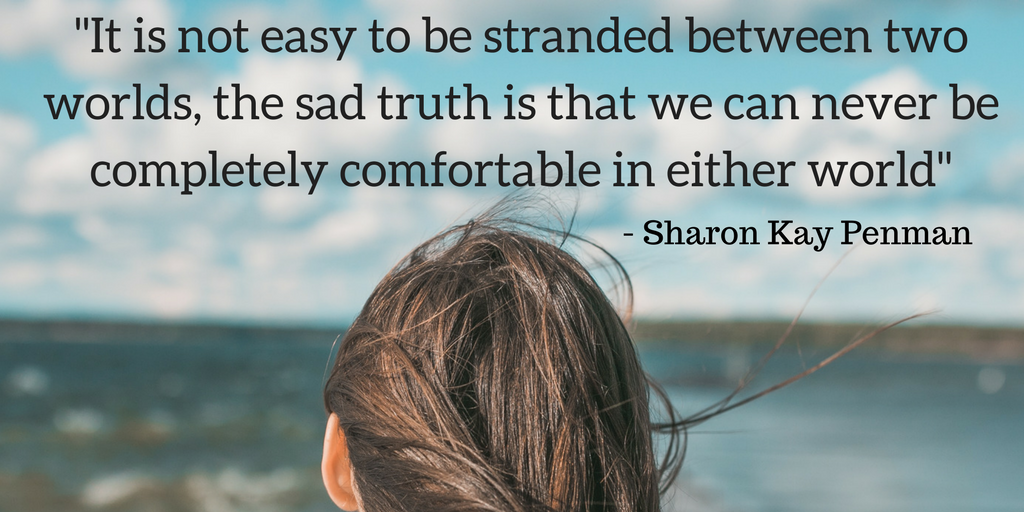
11. ?It is not easy to be stranded between two worlds, the sad truth is that we can never be completely comfortable in either world? ? Sharon Kay Penman
Acknowledging the fact that all people who have internalized at least two different cultures are struggling not only with their own identity, but also with being comfortable in either of these two environments is an important step for any cultural hybrid.
Recognize that these feelings are normal, and that essentially every expatriate who has successfully adapted to another cultural environment has these feelings.
It is really true that we are living ?in between? both cultures. We understand both of them, but we can never exclusively belong to either of them.
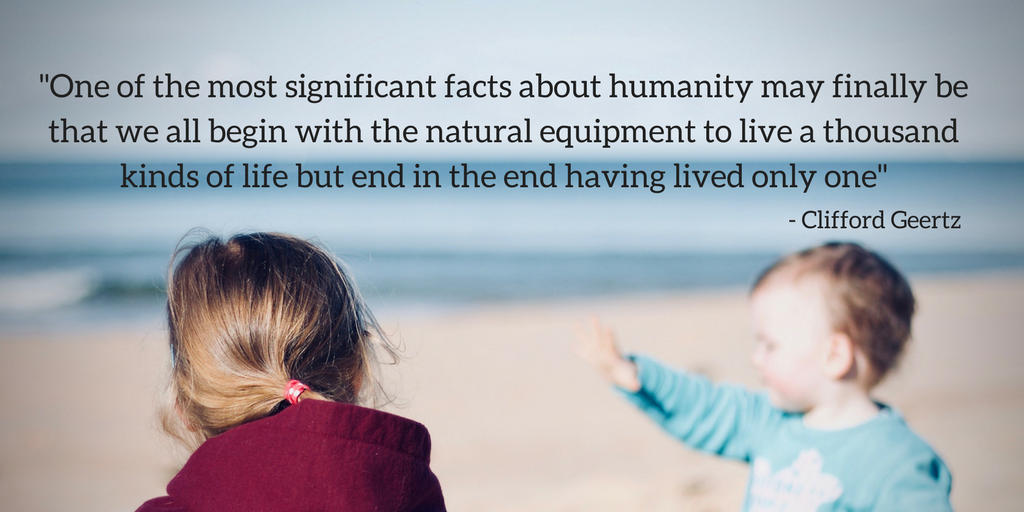
12. ?One of the most significant facts about humanity may finally be that we all begin with the natural equipment to live a thousand kinds of life but end in the end having lived only one? ? Clifford Geertz
This quote is essentially about the effect that the environment we live in has upon us.
When we are born, there is a sheer endless number of opportunities on how we can develop throughout our lifetime. Which of these opportunities actually happen depends on the environment that we find ourselves in, making it extremely important to which environment we expose ourselves.
As such, being very conscious about the culture that we expose ourselves to is an incredibly important factor in how we develop.
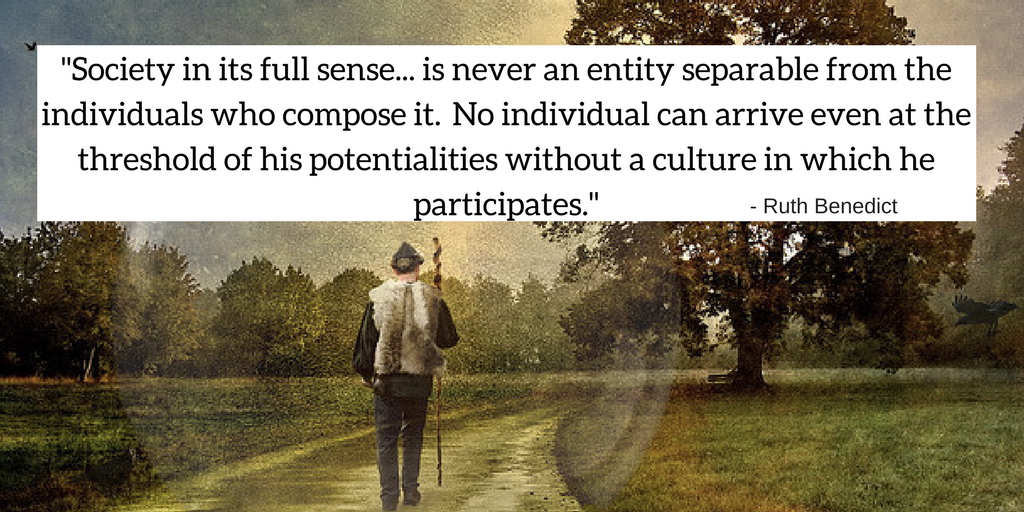 Photo Credit: www.happyhumblehermit.com
Photo Credit: www.happyhumblehermit.com
13. ?Society in its full sense? is never an entity separable from the individuals who compose it. No individual can arrive even at the threshold of his potentialities without a culture in which he participates?
This quote is interesting in that it talks about the mutual influence between the individual himself and the culture in which he or she is placed.
It argues that no individual can arrive even at the threshold of his potentialities without a culture in which he participates.
This makes complete sense. Just ask yourself: would Albert Einstein have been able to come up with the theory of relativity if he had grown up in the desert? Highly unlikely from my perspective. He would have probably been busy inventing methods of how to survive in the desert conditions.
The important message to take away from this quote is that the environment you expose yourself to is shaping who you become. So you better choose wisely.
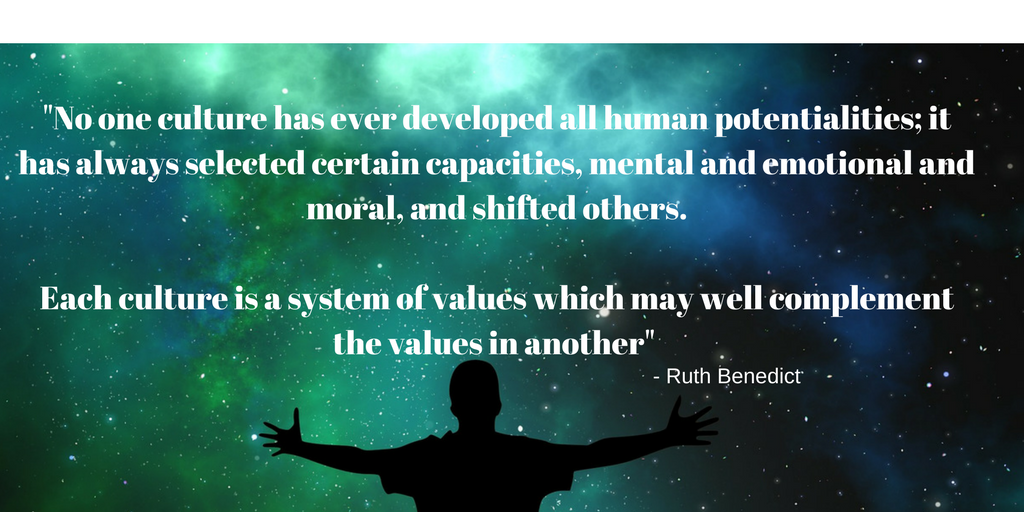
14. ?No culture has ever developed all human potentialities; it has always selected certain capacities, mental and emotional and moral, and shifted others. Each culture is a system of values which may well complement the values in another? ? Ruth Benedict
Culture is the result of the environment in which our ancestors have been placed.
The landscape in China, for example, forced people to build their farms closely together, forcing people to live side-by-side all the time. Consequently, harmony has become one of the key values of the Chinese people and remains so until today.
Consequently, no culture has ever ?learned? all the skills there are to develop in this world. Rather, each culture has specialized on a set of skills that were more conducive to its own situation.
This is exactly what makes it so immensely valuable to learn from a variety of different cultures: each of them has their own unique types of wisdom that we can learn from and grow.
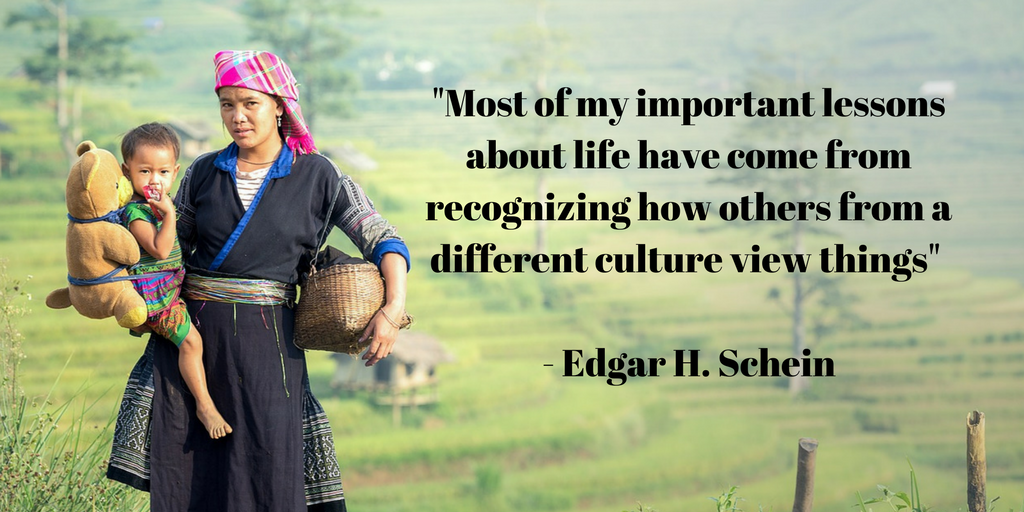
15. ?Most of my important lessons about life have come from recognizing how others from a different culture view things? ? Edgar H. Schein
Since people from a different culture may have completely different perspectives on life than ourselves, they also provide for the most interesting learning opportunities.
Instead of remaining in the same framework of thinking, they challenge our thought processes by showing us that there are completely different approaches to look at a specific issue or think about a problem.
As challengers of our thinking, they have the potentially to break apart our singular view of looking at the world, and allow us to start a process of being able to look at the world from multiple perspectives.
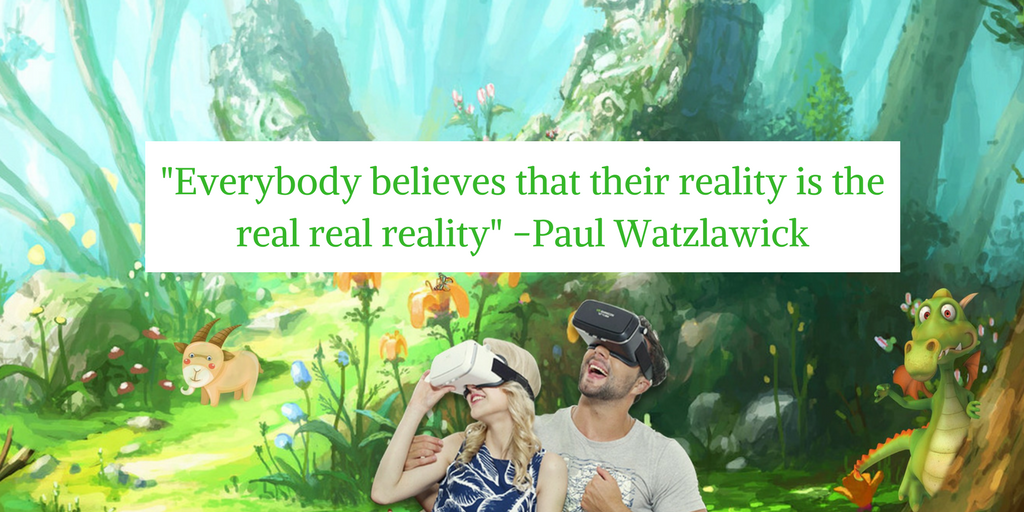
16. Everybody believes that their reality is the real real reality? ? Paul Watzlawick
All humans are by nature self-centered. They believe that they are the one?s who understand reality, and that it is the others who are incapable of seeing it.
Ironically, everybody thinks the same way in that regard, and so we are living in an endless number of different realities clashing with one another.
If we were to add up all these different realities from all the people in the world, we still wouldn?t come to achieve ?objective reality? since humans are constrained by their physical abilities, but surely we would be closer to it.
Thus, every human being in the world has valuable lessons to teach us. We simply need to keep our eyes open to discover them.
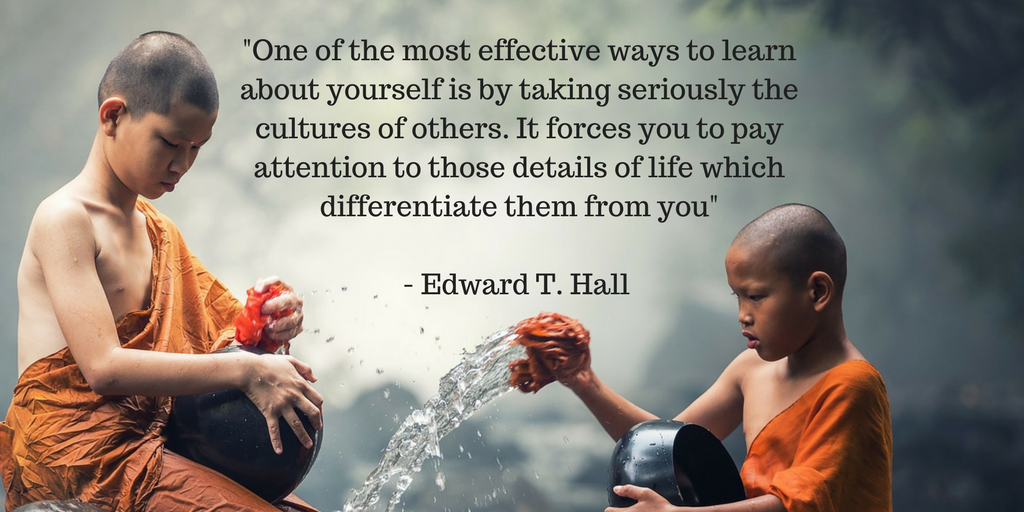
17. ?One of the most effective ways to learn about yourself is by taking seriously the cultures of others. It forces you to pay attention to those details of life which differentiate them from you? ? Edward T. Hall
Most people are struggling with the question who they really are.
Exposing themselves to other cultures can at least help them to understand who they are not.
Being exposed to differences means that we are able to perceive ways of thinking that simply do not go in line with our own way of thinking, thus helping us to learn a little bit more about who we do not want to be.
Ultimately, while it may be difficult for us to tell completely where we are going, it will be much easier for us to get an understanding for where we are not going. Differences help in that matter.
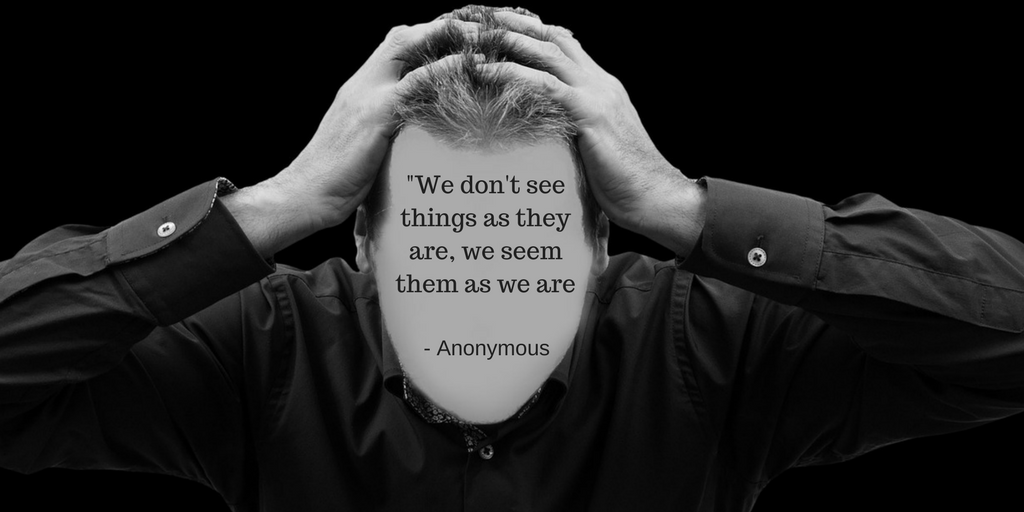
18. We don?t see things as they are, we see them as we are? ? Anonymous
Unfortunately, we do not have the ability to look at something in a purely objective manner.
Our perception will always be guided by our experiences, our beliefs, our patterns of thinking and so on and so forth. As such, we will always remain subjective creatures.
When we are looking at the behavior of somebody from another culture, we should always keep that in mind.
We ourselves interpret the behavior of the other person (or group of people) through the lens of our own cultural conditioning, and it takes careful analysis to break out of that lens.
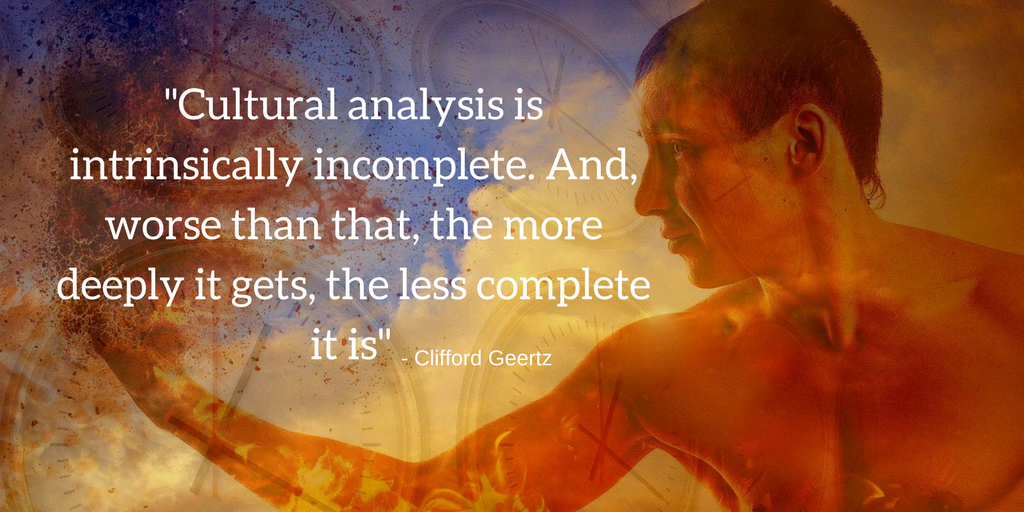
19. Cultural analysis is intrinsically incomplete. And, worse than that, the more deeply it gets, the less complete it is? ? Clifford Geertz
Even a single culture is too complex of a system for us to be able to fully comprehend it.
Since different beliefs of a belief system are all interrelated with one another as opposed to being guided by simple cause-and-effect relationships, we essentially need to understand the interrelationships between thousands of different beliefs if we want to understand a culture as a whole.
Consequently, this feeling comes up that the more we understand about a culture, the more we do not understand.
On the bright side, there simply is no need for us to understand a culture as a whole. Rather, the aim for us should be to become able to effectively achieve our goals in specific areas of the culture which we are trying to achieve. And that, we are perfectly capable of.
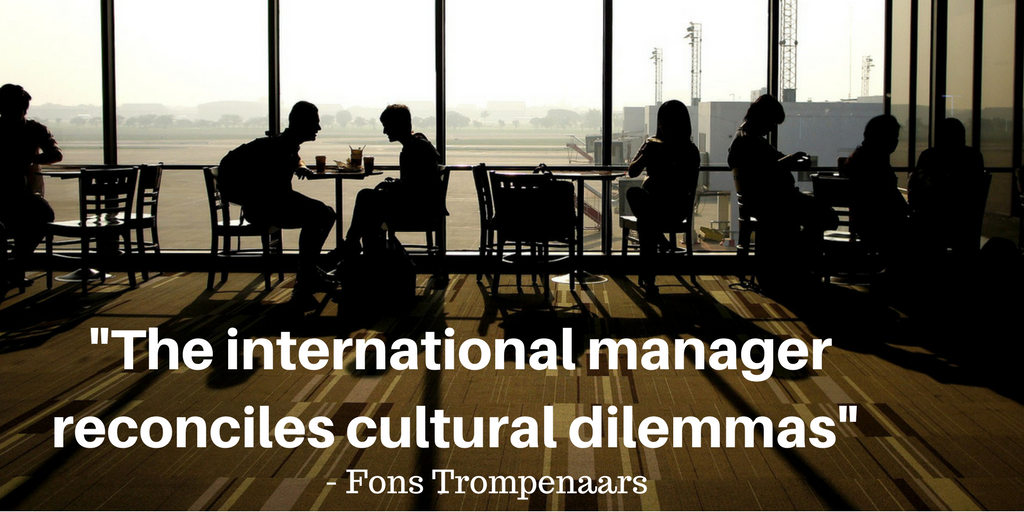
20. ?The international manager reconciles cultural dilemmas? ? Fons Trompenaars
Two different belief systems might often seem diametrically opposed to one another. One of them believes one thing, and the other seems to believe exactly in the opposite.
So how could we possibly solve such cultural dilemmas?
Firstly, we need to recognize the fact that there is wisdom in both perspectives on the world. Secondly, we need to start asking ourselves questions about how we could potentially integrate these different ways of thinking to form a larger whole.
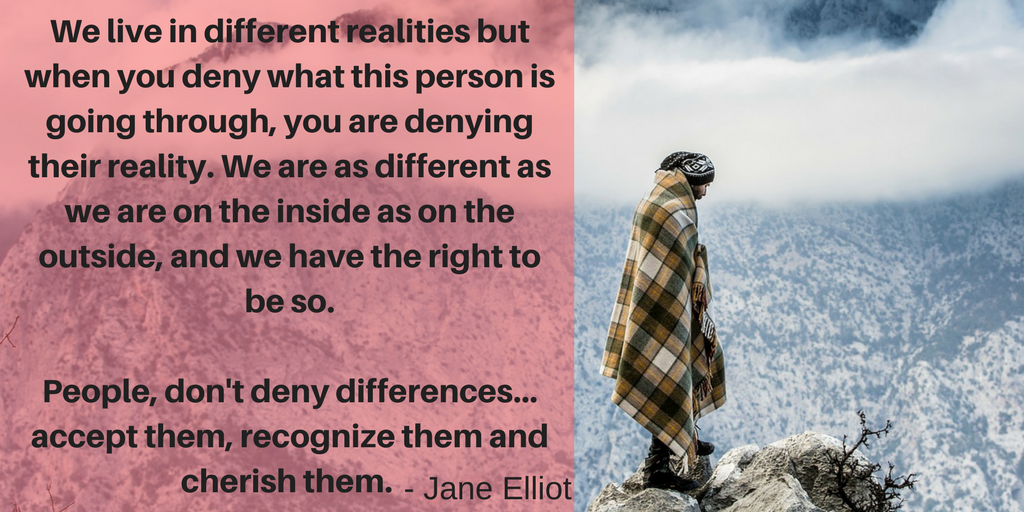
21. ?We live in different realities but when you deny what this person is going through, you are denying their reality. We are as different as we are on the inside as on the outside, and we have the right to be so.
People, don?t deny differences? accept them, recognize them and cherish them? ? Jane Elliot
Differences are at the core of what it means to live an international life, and at the core of tapping into the learning potential of human diversity.
If we are able to not only accept- but also to cherish them while at the same time constantly exposing ourselves to new belief systems and ways of thinking, we develop the capability to reinvent ourselves constantly and learn to adapt a variety of different ways of looking at the world.
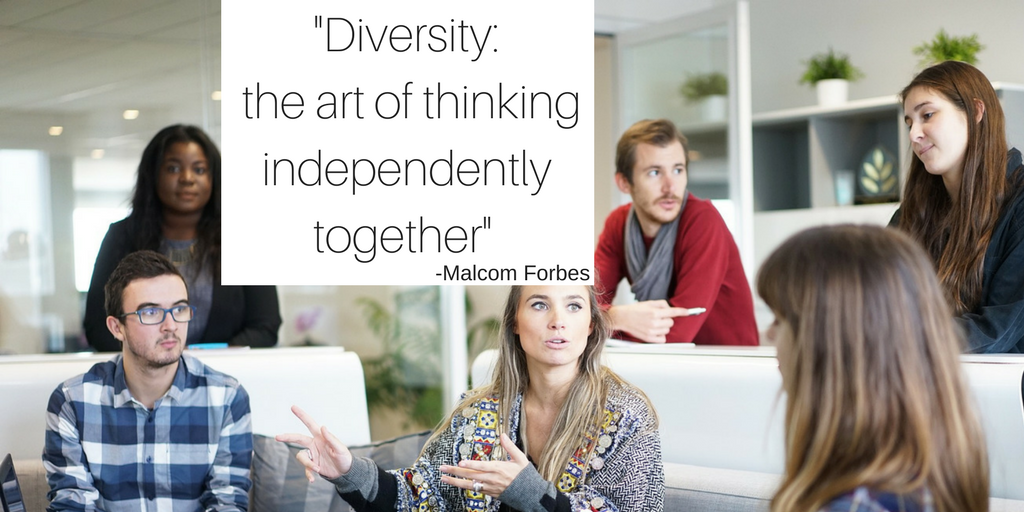
22. ?Diversity: the art of thinking independently together? ? Malcom Forbes
What does it mean to think independently together?
Well, firstly it acknowledges the individuality of all human beings. We are all different from each other. We all have our own beliefs, personality traits, ways of thinking and so on and so forth.
But at the same time, we are also able to bring these differences together, and to create synergy from them.
Research shows consistently that diversity increases creative potential significantly? if a group of people is able to reconcile its differences in order to create a third, new way out of them.
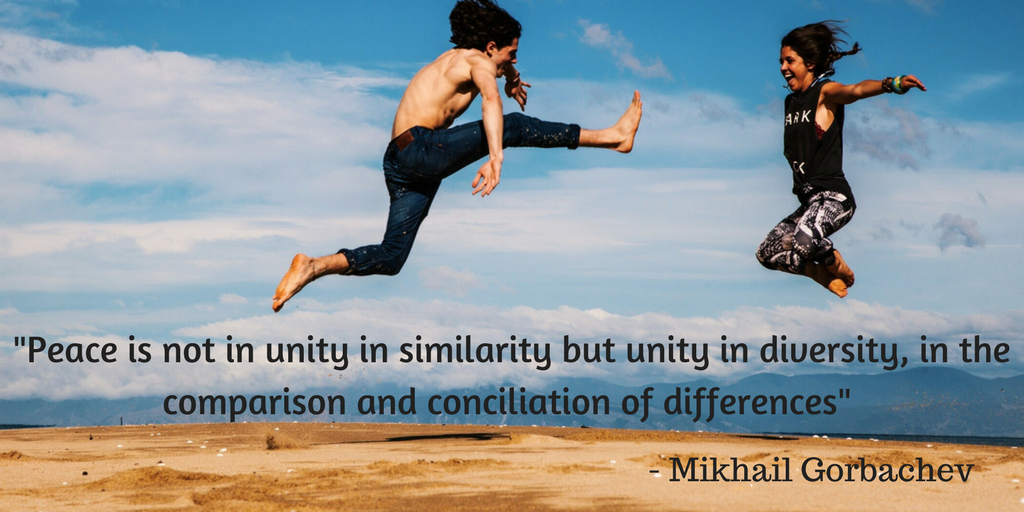
23. ?Peace is not in unity in similarity but unity in diversity, in the comparison and conciliation of differences? ? Mikhail Gorbachev
In this quote, Mikhail Gorbachev provides us with an important hint for how to reconcile differences between people from different cultural backgrounds.
And this hint is quite simple: comparison.
If we really want to be able to reconcile our differences, then first we need to consciously think through both our similarities and our differences.
Where are we similar and where are we different? Where are the overlaps between both our ways of thinking? What can the other perspective teach me about how I can approach this problem in a different manner?

24. ?Choose your self-presentations carefully, for what starts out as a mask may become your face? ? Erving Goffman
In an effort to adapt to another cultural environment, a lot of expatriates tend to act in ways that do not necessarily go in line with their own personal belief system.
They can see that adapting these behaviors lead to much more effective results, and so they use them despite the fact that it makes them feel uncomfortable.
This violates one of the most central principles of cultural adaptation: not staying true to your roots and who you are inevitably leads to self-destruction.
Consequently, we should constantly ask ourselves the question whether the ways in which we have changed are making us feel comfortable, and whether they are in line with who we really are.

25. ?If we wanted home truths, we should have stayed home? ? Clifford Geertz
A lot of expatriates are lying to themselves.
They are moving overseas thinking to themselves that it will be a good move for their career, that it will bring them more money, that they will get used to the situation and so on and so forth.
But the reality is: they are miserable.
This is the case for people that would much rather be in the comfortable environment of their home rather than constantly being exposed to different perspectives and ways of thinking.
Ask yourself honestly: what is more important to you? The comfort of being exposed to familiar ?truths?? Or the potential to learn something new from a completely different perspective?
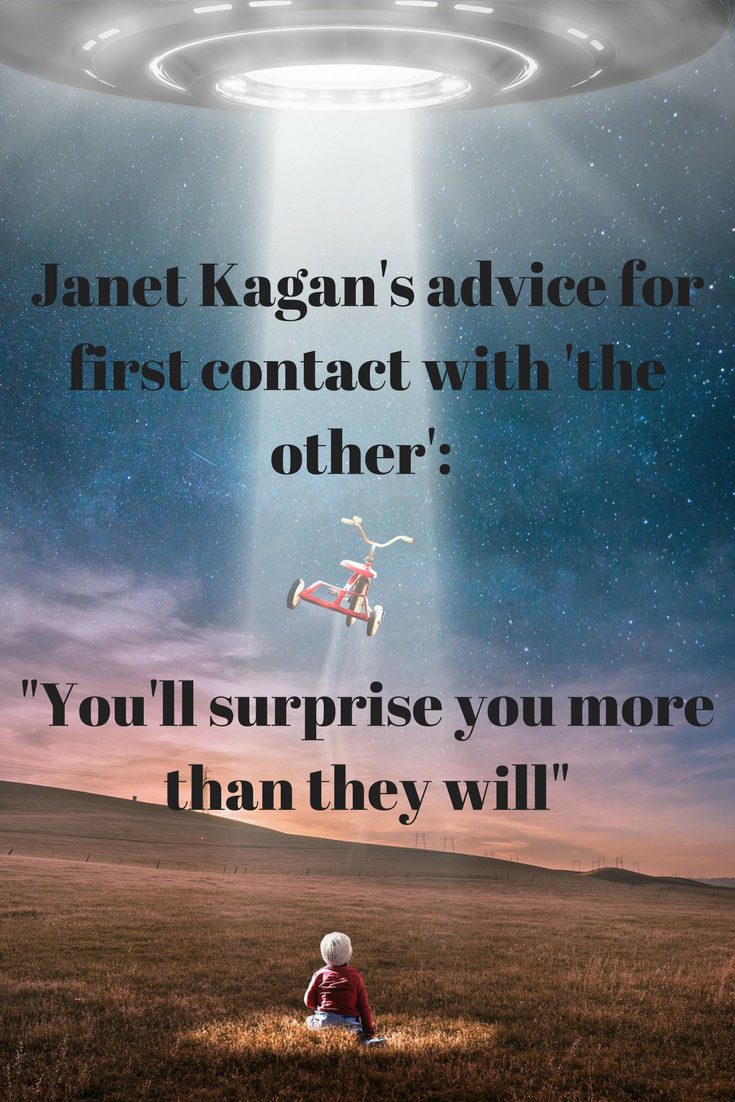
26. ?You?ll surprise you more than they will? ? Janet Kagan
This quote from Janet Kagan on our first contact with people from a new cultural environment is really interesting.
Essentially, the message here is that even more surprising than learning about these new strange behaviors and ways of thinking, it will be to learn about yourself and the lessons you learn about who you really are.
You will find out how you react to new behaviors. How you are perceived by other people from a different environment. To what degree you are able to control your emotions. Which behaviors you are constantly are using that you were previously not aware of. And many more.
Moving to another cultural environment is always a journey of self-discovery as we are learning what is really important to ourselves as opposed to what society dictates to us.
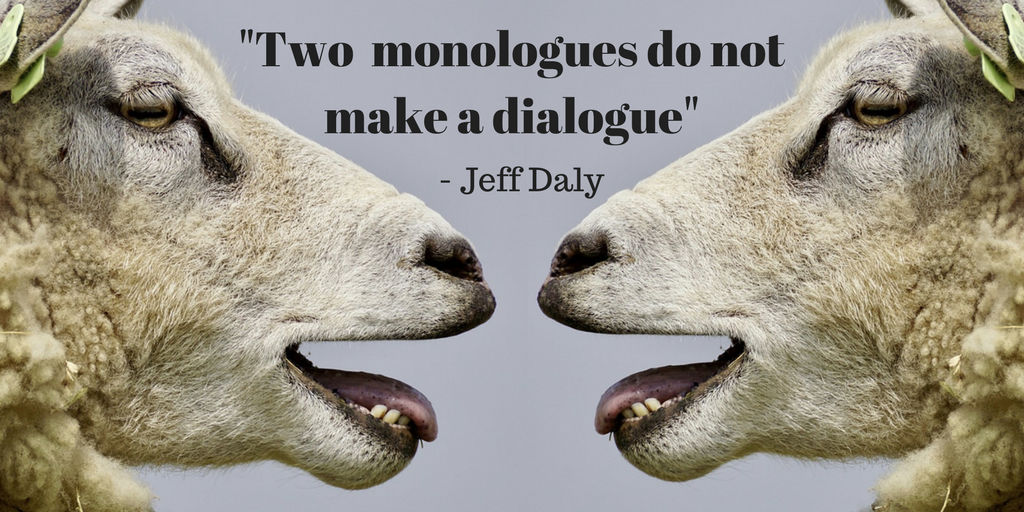
27. ?Two monologues do not make a dialogue? ? Jeff Daly
There is so much more to speaking with each other than simply an exchange of statements.
We need to pay attention to what the other person is saying, really try to understand what meaning he or she is trying to get across, analyse his or her way of thinking and behaving, as well as showing that we appreciate their contributions to the conversation.
In the end, mere differences in opinion will never lead to serious damages to a relationship, even if they lead to temporary conflict.
But what will lead to real damages to a relationship is if the other person does not feel that we are paying real attention and fully appreciate them for who they are.
Intercultural communication can actually be very simple if we let go and simply do our best to pay attention and appreciate.
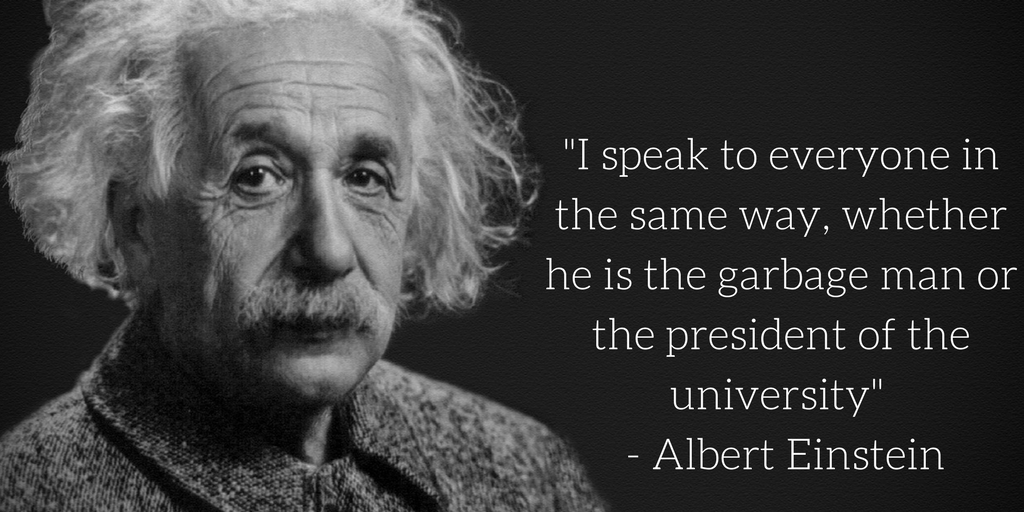
28. ?I speak to everyone in the same way, whether he is the garbage man or the president of the university? ? Albert Einstein
I want to end this article with an idea which, at least to me, is very controversial.
One of the main principles of intercultural communication is that we should adapt our method of behavior according to the needs, beliefs, and ways of thinking of the other party (of course without violating our own roots).
At the same time, however, it also holds a very important thought: namely that every person is equally valid and that we should thus treat everybody in the same way.
That brings us to the Golden Rule ? that we should treat everybody the way we want to be treated ourselves.
The Golden Rule essentially forgets this: not everybody wants to be treated in the same way like us. The other person may have completely different needs compared to us!
In the end, a large part of managing the process of intercultural communication and adapting to another culture is to manage the paradoxes that are inherent in it ? such as balancing the need for staying true to our roots versus the need to learn and grow.
For more articles on intercultural communication, feel free to visit my website:
